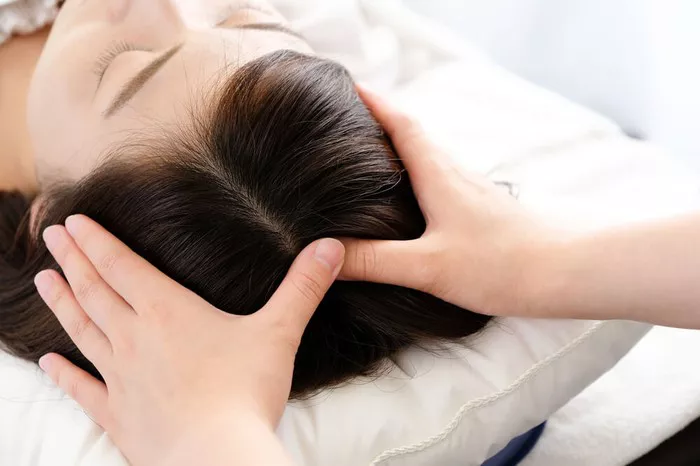Hair loss is a common concern affecting millions of individuals worldwide, transcending gender and age. The pursuit of effective remedies often leads to exploring various treatments, including medications, dietary changes, and alternative therapies. Among these, scalp massage has garnered attention as a potential method to combat hair loss. But does massaging the scalp truly stop hair loss? This article delves into the science, benefits, techniques, and evidence surrounding scalp massage and its role in hair health.
Understanding Hair Loss
Causes of Hair Loss
Hair loss, medically known as alopecia, can be caused by a myriad of factors including genetics, hormonal changes, medical conditions, medications, and lifestyle choices. Androgenetic alopecia, commonly referred to as male or female pattern baldness, is the most prevalent form of hair loss, driven primarily by genetic predisposition and hormonal influences. Other types include alopecia areata, telogen effluvium, and traction alopecia, each with distinct etiologies and manifestations.
Hair Growth Cycle
To comprehend how scalp massage might affect hair loss, it is essential to understand the hair growth cycle, which consists of three main phases:
Anagen (Growth Phase): This is the active phase where hair follicles produce new hair. It lasts between two to seven years.
Catagen (Transitional Phase): A brief phase lasting about two weeks, during which hair growth stops, and the hair follicle shrinks.
Telogen (Resting Phase): Lasting around three months, this phase culminates in hair shedding as the old hair is pushed out by new growth.
Disruptions in this cycle can lead to increased hair shedding and thinning.
The Science Behind Scalp Massage
How Scalp Massage Works
Scalp massage involves the application of pressure and movement to the scalp, often using the fingertips. The primary mechanisms through which scalp massage is believed to influence hair health include:
Improved Blood Circulation: Massage increases blood flow to the scalp, which can enhance the delivery of oxygen and nutrients to hair follicles, promoting healthier hair growth.
Reduced Stress: Stress is a known contributor to hair loss. Massage can help reduce stress levels by stimulating the production of endorphins and other neurotransmitters that induce relaxation.
Stimulation of Hair Follicles: The mechanical action of massage may directly stimulate hair follicles, encouraging them to enter the anagen phase.
Techniques for Effective Scalp Massage
Basic Scalp Massage
Performing a basic scalp massage is straightforward and can be done using your fingers or a scalp massager. Here’s a simple method:
Preparation: Sit comfortably and ensure your hands are clean. Optionally, apply a few drops of essential oil such as lavender or rosemary, known for their potential hair benefits.
Starting Point: Begin at the temples, using your fingertips to apply gentle pressure.
Circular Motions: Move your fingers in small, circular motions, covering the entire scalp. Spend about 5-10 seconds on each spot before moving to the next area.
Duration: Aim for at least 5 minutes of massage, gradually increasing to 10-15 minutes as you become accustomed to the practice.
Advanced Techniques
For those seeking more specialized methods, advanced scalp massage techniques can be incorporated:
Kneading: Using your knuckles, gently knead the scalp in circular motions. This technique can help increase blood flow more effectively.
Tapping: Lightly tap your scalp with your fingertips, mimicking the rhythm of rainfall. This method can stimulate the scalp without causing strain.
Pulling: Gently tug small sections of hair, applying light pressure to the roots. This can stimulate hair follicles and promote growth.
See Also: Can Drinking Water Help with Hair Loss: What You Need to Know
Tools for Scalp Massage
In addition to manual techniques, various tools can enhance the effectiveness of scalp massage:
Scalp Massagers: Handheld devices with rubber bristles can provide consistent pressure and coverage.
Massage Brushes: Brushes with soft, rounded tips can help distribute natural oils and improve circulation.
Electric Massagers: Battery-operated scalp massagers can offer a more vigorous massage, ideal for those with limited dexterity.
Complementary Practices for Hair Health
While scalp massage can contribute to healthier hair, combining it with other practices can enhance results.
Nutrition and Diet
A balanced diet rich in vitamins and minerals is crucial for hair health. Key nutrients include:
Biotin: Found in eggs, nuts, and seeds, biotin supports keratin production.
Iron: Essential for oxygen transport to hair follicles, found in red meat, spinach, and legumes.
Vitamin D: Supports hair follicle cycling, sourced from sunlight, fish, and fortified foods.
Zinc: Aids in tissue growth and repair, available in meat, shellfish, and dairy products.
Stress Management
Chronic stress can exacerbate hair loss. Incorporating stress management techniques such as yoga, meditation, and regular exercise can support overall well-being and hair health.
Hair Care Routine
Proper hair care can prevent additional hair loss and damage. Tips include:
Gentle Handling: Avoid excessive brushing and harsh styling practices that can cause breakage.
Mild Shampoos: Use sulfate-free shampoos to avoid stripping natural oils.
Conditioning: Regular conditioning can keep hair hydrated and reduce breakage.
Protective Styles: Limit the use of tight hairstyles that can cause traction alopecia.
Conclusion
Scalp massage presents a promising, non-invasive approach to improving hair health and potentially mitigating hair loss. While it may not offer a complete cure for conditions like androgenetic alopecia, it can enhance hair thickness, reduce shedding, and promote an overall healthier scalp environment. Coupled with a nutritious diet, stress management, and a proper hair care routine, scalp massage can be a valuable component of a holistic approach to hair health. As with any treatment, consistency is key, and individuals should consult with a healthcare professional to tailor a regimen suited to their specific needs.


